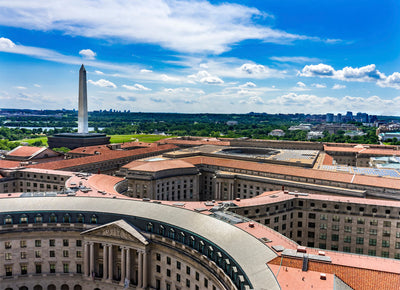How Is EPA Responding to COVID-19?
RSS
Analies Dyjak, M.A. | Policy Nerd
We wanted to make people aware of a recent policy change that has generated some pretty inflammatory headlines. Like other federal agencies, the Environmental Protection Agency (EPA) has issued a new policy that relaxes enforcement of some regulations during the COVID-19 emergency.
How Is EPA Responding to COVID-19?
The goal of EPA’s discretionary enforcement policy is to acknowledge that limited available personnel may make it difficult to carry out, enforce, and monitor regulated entities at the local and state level. In short, EPA will “exercise discretion” when enforcing certain environmental rules, including the Safe Drinking Water Act. The new policy will not enforce; compliance monitoring, integrity testing, sampling, laboratory analysis, training, and reporting or certification. All of these conditions are applicable to municipal tap water. From a public health perspective, this is a bit alarming! The enforcement section of the Safe Drinking Water Act ensures that all tap water across the country is safe for consumption. The official statement from EPA is as follows:
“EPA does not expect to seek penalties for noncompliance with routine monitoring and reporting obligations that are the result of the COVID-19 pandemic but does expect operators of public water systems to continue to ensure the safety of our drinking water supplies.”
How Will City Water Utilities Respond?
EPA’s new policy puts a lot of trust on industries and municipalities to act in “good faith” during this period of relaxed enforcement. While it’s our experience that the overwhelming majority of municipalities do work in good faith, there will always be “bad apples” who don’t follow the rules. We wanted to point out a few communities that have not acted in good faith in the past regarding drinking water.-
Flint, Michigan: It took over a year for the City of Flint to acknowledge that there was a problem with lead levels in their water during the now infamous Flint Lead Crisis.
-
Major Cities Employing “Cheats” To Circumvent EPA’s Lead & Copper Rule: In 2016, The Guardian exposed several municipalities who were participating in “lead cheats” to artificially lower lead levels in the public supply. Some of the larger municipalities included Chicago, Boston, and Philadelphia.
-
North Carolina and GenX: Chemours had been knowingly dumping GenX chemicals into the Cape Fear River for decades, which is the source water for dozens of surrounding North Carolina communities. Part of the legal retribution is to pay for water testing and filtration installation for all affected parties. On March 25, 2020, North Carolina Department of Environmental Quality announced that Chemours will suspend water testing and filtration installation in the Cape Fear basin, putting those residents at risk.
-
Newark, New Jersey: Newark, New Jersey detected lead levels that were on par with Flint, Michigan during the height of its lead crisis over the summer of 2019. The city failed to properly test the low-end water filters being distributed by the city, against lead levels found in Newark tap water. This resulted in residents being unknowingly further exposed to high lead levels.
-
Portland, Oregon: Lead levels in Portland, Oregon have been elevated for years. Worse, the city's annual Consumer Confidence Reports hides the lead collection data on the last page.
How Will EPA’s New COVID-19 Response Policy Affect Drinking Water?
Communities across the country are suspending ongoing drinking water improvement efforts to focus on COVID-19. We agree that this is an important step in protecting individuals from this deadly infectious disease, and that common sense measures should be in place. In response to COVID-19, EPA will follow the 2010 Drinking Water Enforcement Response Policy, which created a priority ranking system. In short, systems that have had several violations will receive more federal resources than systems with fewer violations or those in compliance.
Industries to “Self-Monitor” During COVID-19
Part of EPA’s response to COVID-19 is to reduce regulatory enforcement due to decreased available personnel. There’s reason to believe that fewer industrial checks and balances will increase the amount of pollution that ends up in source water. EPA regulates and monitors industrial behavior that may have a negative impact on human health and the environment. As it pertains to drinking water, EPA limits the amount of pollution that industries are allowed to release into water. Rivers, lakes, and groundwater are used as drinking water sources by municipalities across the country. These regulatory limits, also known as "pollutant loads", are one of the most important ways to ensure the effectiveness of water treatment. Most municipal water treatment facilities are typically not capable dealing with increased pollution.




